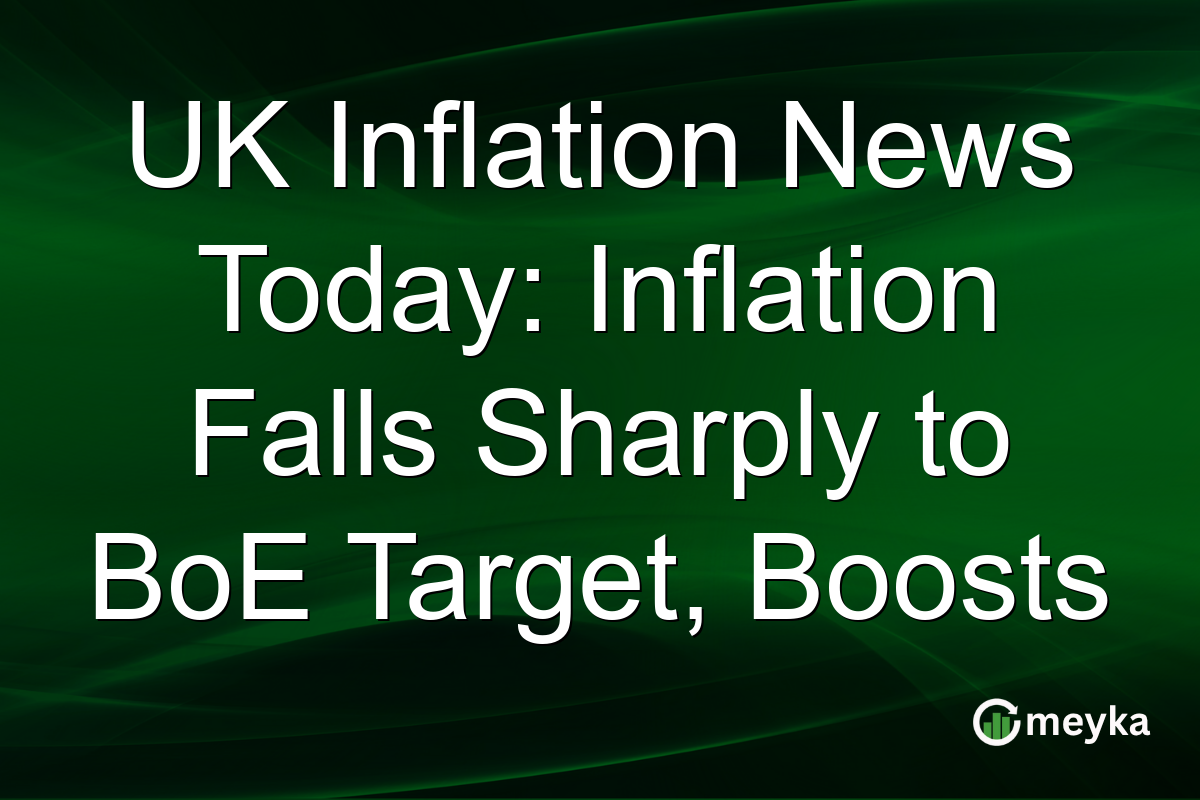UK Inflation News Today: Inflation Falls Sharply to BoE Target, Boosts
Today’s economic headlines surprise many, as the UK inflation rate today has decreased sharply, reaching the Bank of England’s long-awaited 2% target. This milestone, reported in the UK CPI September 2025 data, marks the first time in several years that inflation aligns with the BoE’s goal, signaling potential shifts in monetary policy. Investors and consumers alike are eager to explore what these changes mean for interest rates and economic outlooks.
UK CPI September 2025: A Closer Look
The latest Consumer Price Index (CPI) figures for September 2025 show a significant drop in inflation. Falling from 2.4% in August to a stable 2%, UK inflation has finally reached the Bank of England’s target. This decline reflects decreases in energy prices and improved supply chain stability. The CPI, which tracks changes in the price level of a basket of consumer goods and services, serves as a key indicator of inflation trends. For many, this news suggests a positive turn in the UK’s economic recovery, enhancing consumer purchasing power and easing cost-of-living pressures.
Implications for Bank of England Interest Rates
With inflation now at the BoE’s target, speculation is rife regarding a potential interest rate adjustment. Historically, the Bank of England uses interest rates as a tool to control inflation, often decreasing rates to stimulate economic growth. This current alignment with their target may prompt the Monetary Policy Committee to consider reducing rates sooner than expected. Lower interest rates might benefit borrowers while potentially boosting economic activity. However, central bank officials have not yet confirmed any timeline for these changes, leaving room for market speculation and debate.
UK Inflation Outlook: What Lies Ahead?
Looking forward, the UK inflation outlook appears more favorable than it has in recent times. Analysts believe the factors contributing to this inflation decrease, such as stabilizing energy costs and improvements in supply chains, may continue in the short term. Nevertheless, uncertainties remain, particularly regarding geopolitical risks and potential commodity price fluctuations. The BoE will need to navigate these variables carefully to sustain economic stability and growth. As investors monitor developments, conditions are likely to influence both consumer sentiment and investment strategies across various sectors.Bloomberg reports highlight these evolving market dynamics.
Final Thoughts
The UK inflation rate today reaching the Bank of England’s 2% target is a landmark in the nation’s journey toward economic stability. This achievement could pave the way for earlier interest rate cuts, potentially energizing economic growth and helping consumers manage living costs. However, as the BoE deliberates next steps, investors must remain cautious, considering both domestic and global factors that could impact this economic trajectory. Utilizing platforms like Meyka can provide investors with real-time insights and predictive analysis to navigate these complex markets effectively. As we move forward, staying informed and agile will be key to capitalizing on these developments.
FAQs
The UK inflation rate today dropped to 2% due to several factors, including lower energy prices and improved supply chain conditions. These changes helped stabilize the cost of consumer goods and services, aligning inflation with the Bank of England’s target.
Reaching the Bank of England’s 2% inflation target could prompt a reconsideration of interest rate policies. While no immediate changes have been announced, this alignment suggests the possibility of rate cuts to stimulate economic growth by reducing borrowing costs.
The drop to a 2% inflation rate could benefit the UK economy by enhancing consumer purchasing power and reducing cost pressures. It also implies potential adjustments in monetary policy, which could foster economic activity and stability. However, global uncertainties remain a concern.
Disclaimer:
This is for information only, not financial advice. Always do your research.






